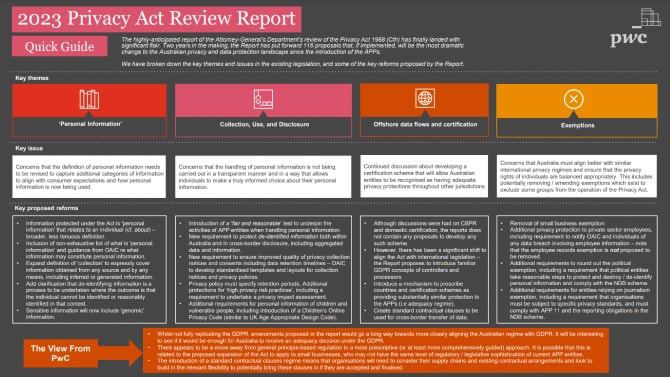{{item.title}}
{{item.text}}

{{item.text}}
The highly-anticipated report of the Attorney-General’s Department’s review of the Privacy Act 1988 (Cth) has finally landed. Two years in the making, the Report has put forward 116 proposals that, if implemented, will be the most dramatic change to the Australian privacy and data protection landscape since the introduction of the APPs.
We have broken down the key themes and issues in the existing legislation, and some of the key reforms proposed by the Report.
Organisations should consider the ‘agreed’ reforms immediately in the context of their business to determine if further compliance uplift is required. These changes are more limited in nature, reflecting a measured and cautious approach in refreshing Australia’s privacy regime.
There is appetite for longer term uplift to the Privacy Act, and organisations should be working towards compliance with these wider range of reforms using lessons learned from global best practices (e.g. GDPR). We believe many of these are simply good governance and be considered to manage organisational data risks.
The Government acknowledges the importance of these proposals however will give further consideration to how these can be achieved. There may be privacy risks associated with targeted advertising and de-identified information that organisations should not overlook, as the Government adjusts its position with these proposals.
{{item.text}}

{{item.text}}



